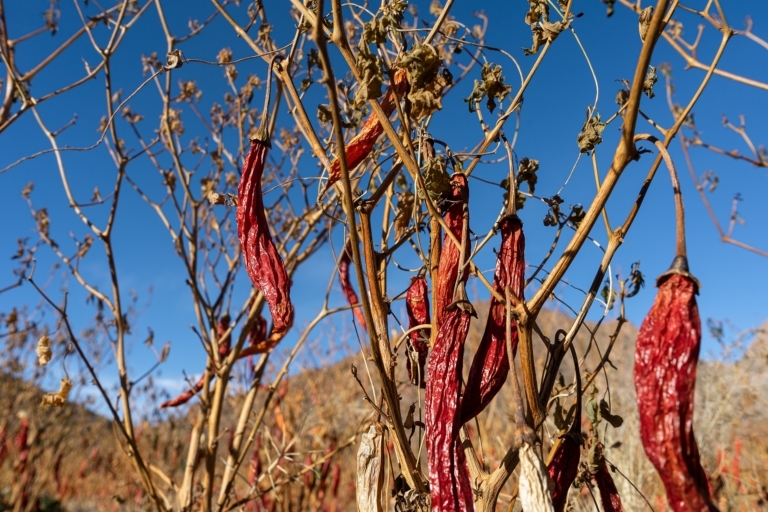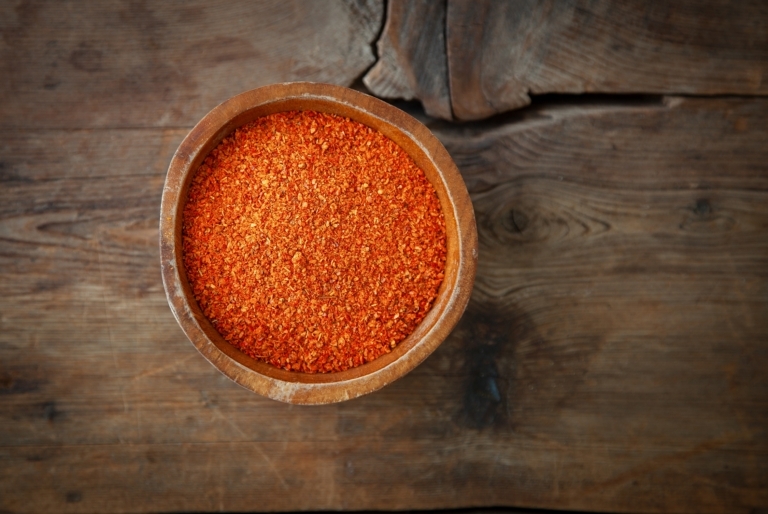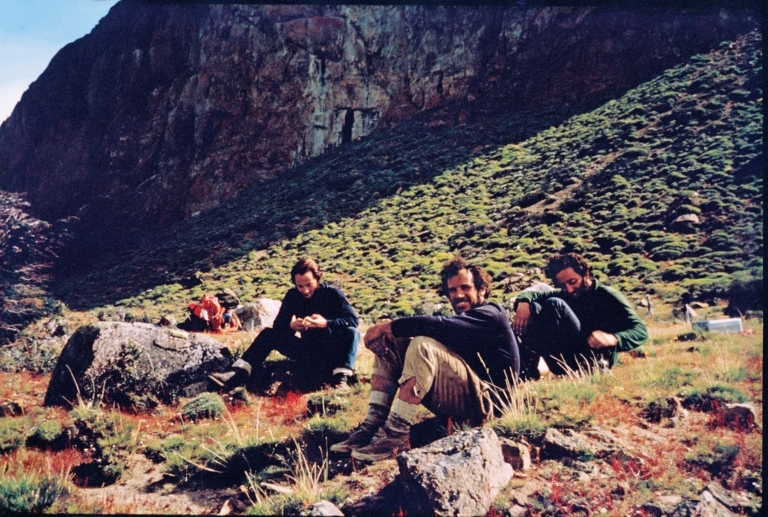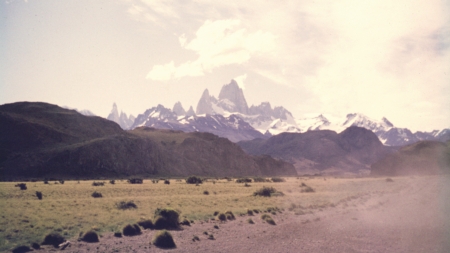Chasing a Flavor
Sometimes a taste, like a favorite song, sticks with you, calling your attention back to it again and again.
That’s how it’s been for Patagonia founder Yvon Chouinard with aji molido, a coarsely ground red chile from Argentina. In 1968, he and a few friends went down to Patagonia to climb Fitz Roy, also known as Cerro Chaltén, from a Teheulche (Aonikenk) word for “smoking mountain.” They spent weeks waiting out the bad weather and ended up camping and eating with a group of gauchos who would grill mutton—and then, from an old wine bottle with a slit cork, sprinkle the hot meat with chimichurri, a garlicky, vinegary sauce flecked with dried herbs and aji molido. The sauce could keep for weeks without refrigeration, and the chile gave it a rich, mellow warmth, not too hot and full of flavor.
There are hundreds of variations on chimichurri, but the essential ingredient, from Yvon’s point of view, was aji molido (literally “ground chile”) made from a long red chile known in Argentina as aji criollo. Nothing else gave the sauce its nuanced, layered heat.
Despite years of looking, the only place Yvon ever found the proper chiles was El Gato Negro, an herb shop in Buenos Aires. Whenever he was there, he’d buy a giant stash to store in the freezer for making chimichurri and seasoning a lot of other stuff, too: meat, potatoes, squash and grains.

After the chiles are picked high in the mountains of Argentina’s Salta province, they’re trucked to the Molino Cerrillos facility to be ground and steam-sterilized. Photo: Galen McCleary
Eventually Yvon tried to grow the chiles from seed at home in California, but they turned out too spicy. More years passed.
Finally, in 2017, with help from the team at Patagonia’s food company, Patagonia Provisions, Yvon found exactly the right source for aji criollo: in Argentina’s Salta province, where the spice company Molino Cerrillos grows the chiles at 8,200 feet. The growers believe a combination of extreme altitude, dry air, scanty irrigation and harsh limestone soil makes the plants fight for survival and results in deeper, richer flavors—the way grapes grown in tough conditions can develop added character, too. What tempers the chile’s heat? Most likely the climate, which never exceeds 90° F and often hangs out around 50° F or 60° F.

Coarsely ground aji molido adds mellow heat and rich, toasty flavor to several foods we make at Provisions. Photo: Amy Kumler
Molino Cerrillos worked with Provisions to grow the first organic aji criollo in Argentina, rejecting synthetic fertilizers and adding compost. Given the remote location of the farm—from the provincial city of Salta, it’s a drive of several hours on unpaved mountain roads and across rocky riverbeds—every change was a challenge, including bringing in new supplies and arranging for organic certifiers to come from Buenos Aires.

Most great tastes tend to be rooted in place. From left: Yvon Chouinard, Doug Tompkins and Lito Tejada-Flores take a chimichurri-infused lunch break before continuing their ascent. Los Glaciares National Park, Argentina. Photo: Chris Jones
By harvest time in May, the chiles ripen to a brilliant scarlet and then dry on the plant, further concentrating the flavor. To preserve the vivid color as the chiles dry, the plants are uprooted and laid under shade trees. Then the pods are picked and trucked to the Molino Cerrillos facility in Salta, ground and briefly steamed to sterilize, and shipped to the States. Provisions blends these remarkable chiles into several different foods, with more on the horizon.
After all these years, finding the right source for aji molido has been a useful reminder that great flavor tends to be rooted in a place.


